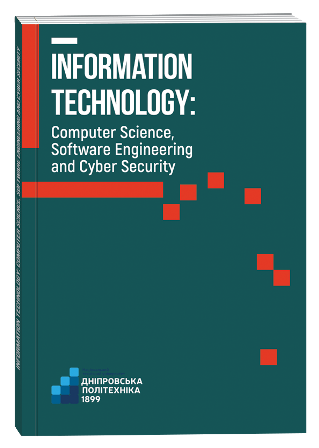PROBLEMS OF PROFESSIONAL SELF-DETERMINATION IN FUTURE CAREER AND DISSATISFACTION WITH EDUCATION: ANALYSIS OF THE CURRENT SITUATION USING EXAMPLE OF THE USA
DOI:
https://doi.org/10.32782/IT/2025-1-27Keywords:
education, self-learning, recommender system, expert, decision-making, business processes, information and communication system, testing, data analysis, forecasting.Abstract
The problem of the level and quality of education is still relevant not only among students but among educational institutions and countries in general. For several years, there has been a growing trend of decreasing student satisfaction with the educational process and chosen specialties. The main reasons for dissatisfaction are the complexity of choosing a specialty, the inability of the educational program to provide the desired level of competencies, and the inconsistency of education with market expectations. A significant percentage of students change their specialty at different stages of study, negatively affecting personal career prospects and the country's economy. The purpose of this work is to identify key factors contributing to dissatisfaction with the educational process, determine the main tools and methods for correcting the choice of specialty, and eliminate problems associated with the uncertainty of this choice, using the example of the USA. The methodology involves conducting a systematic review of scientific literature, previous research in the direction of research, and surveys of authoritative researchers and scientific teams regarding satisfaction with education in the USA. Scientific novelty. The study aims to determine the level of dissatisfaction with education in the United States, identify the key factors of this dissatisfaction, search for problems and consequences to which these problems can lead, identify the problem of choosing a suitable specialty for a student, the level of dissatisfaction with the chosen profession, as well as identify the impact of an error in choosing a specialty by an individual on the country's economy. Conclusions. The study demonstrates that many students and employees in the United States believe that they made a mistake in their choice of profession and are dissatisfied with the learning process. The main reason for this is insufficient awareness and preparation when choosing a specialty, which increases the likelihood of frequent changes in educational direction and the need to obtain additional education after starting work. Due to insufficient awareness of the student himself, existing career guidance methods are insufficiently effective in building recommendations for applicants. These problems contribute to low job satisfaction, low productivity, frequent job changes, burnout, and decreased economic indicators worldwide.
References
Brenan M. Americans' Confidence in Higher Education Down Sharply. Gallup. 2023. URL: https://news.gallup.com/poll/508352/americans-confidence-higher-education-down-sharply (дата звернення 26.08.2024).
Saad L. Historically Low Faith in U.S. Institutions Continues. Gallup. 2023. URL: https://news.gallup.com (дата звернення 26.08.2024).
Robinson A. Student Confusion Selecting Majors Increases Higher Education Cost and Time to Earn Degree. Businesswire. 2019. URL: https://www.businesswire.com (дата звернення 26.08.2024).
Statista ag. Monthly employment level of the United States from July 2022 to July 2024. Statista Research Department. 2024. URL: https://www.statista.com/statistics/209123 (дата звернення 26.08.2024).
National Center for Education Statistics (NCES). Percentage of 2011–12 First Time Postsecondary Students Who Had Ever Declared a Major in an associate or bachelor’s Degree Program Within 3 Years of Enrollment, by Type of Degree Program and Control of First Institution: 2014. Institute of Education Sciences, U.S. Department of Education. Washington, DC. 2017. URL: https://nces.ed.gov (дата звернення
08.2024).
Hanson M. College Enrollment & Student Demographic Statistics. Education data. 2022 URL: https://educationdata.org (дата звернення 26.08.2024).
Morris Phillip & Castro-Faix, Moraima & Hengtgen, Kristen & Rapp, Kelly & Winkler, Christa & Xu, Tonghui. Virtues of Academic Exploration: Impact of Major Changes on Degree Completion. Journal of College Orientation, Transition, and Retention. 2023. 30. DOI: 10.24926/jcotr.v30i1.4904
Nietzel M. T. College Applications Are Up Dramatically In 2023. Forbes. 2024. URL: https://www.forbes.com/sites/michaeltnietzel/2023/03/30 (дата звернення 26.08.2024).
Reid G. L. Job Search and the Effectiveness of Job-Finding Methods. ILR Review, 2016. 25(4), 479–495. https://doi.org/10.1177/001979397202500401
State of the Global Workplace 2024 Report (2024). Gallup. URL: https://www.gallup.com/workplace (дата звернення 26.08.2024).
Chess Widho Wati, Mohammad Rizza, Mahmud Sugandi. The Determinant Factors in the Selection of Specialization on Building Engineering Program Expertise for New Students at Vocational High School in Malang on Readiness Work in Construction Services Industry. Proceedings of the 2nd International Conference on Vocational Education and Training (ICOVET 2018). Atlantis Press, 2019. Р. 40–43. https://doi.org/10.2991/icovet-18.2019.10
Chatfield Hyun Kyung (Grace) & Lee Sojung & Chatfield Robert. The Analysis of Factors Affecting Choice of College: A Case Study of University of Nevada Las Vegas Hotel College Students. Journal of Hospitality & Tourism Education. 2013. 24. 26–33. https://doi.org/10.1080/10963758.2012.10696659







